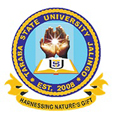Evaluating Effective Education In Nigeria For National Development: A Social Studies Perspective
Emaikwu Victoria Ojoma
Department of Social Studies, School of Arts and Social Sciences Federal College of Education, Yola, Adamawa State
Email: emaikwuvicky@gmail.com
Abstract
The Nigerian education system has been widely discussed in relation to its impact on national development. This paper evaluates the effectiveness of education in Nigeria from a social studies perspective. The paper is anchored on the Human Development Theory. It identifies key factors that contribute to the success of education and Social Studies education in Nigeria, such as government policies, teacher training, and curriculum implementation. It also explores the challenges faced by the education system in relation to Social Studies education and proposes potential solutions to address them. It also provides valuable insights into the current state of education and Social Studies in Nigeria and its potential for promoting national development.
Keywords: Evaluating, effectiveness, education, national development, social studies.
1.0 Introduction
Education is universally recognized as one of the most powerful tools for catalysing community development and national progress. Its role in shaping both individual and collective futures has been a subject of extensive discourse across various disciplines, from sociology to economics. As the foundation of personal empowerment, education equips individuals with knowledge and skills, which, in turn, enable them to contribute meaningfully to the development of their communities. This transformative power extends beyond the individual level; education fosters social cohesion, economic advancement, and political stability, ultimately serving as a catalyst for sustainable community development (UNESCO, 2021).
Nussbaum, (2017), Amartya Sen (2019) and Freire (2020) have long emphasized the diverse impact of education, arguing that it extends far beyond individual achievement to drive broader societal transformation. According to Freire (2020), education functions as a liberating force, empowering individuals to challenge existing social and economic inequalities. By equipping people with critical consciousness, education enables them to understand and reshape the realities of their societies. Freire’s perspective positions education as a vehicle for social change, particularly in contexts where poverty, inequality, and systemic oppression hinder development. His argument affirms the importance of education not just for personal advancement but also for the empowerment of entire communities, making it a cornerstone of national development strategies (Nussbaum, 2017). The education system in Nigeria has contributed rapidly to the development of the nation. One of the major things that seem to be unchanging in human society is the consistent desire for the pursuit of systematic sustainable growth and development. From an economic perspective, education is crucial for enhancing human capabilities and fostering economic growth. Nobel laureate Amartya Sen (2019) highlights the strong correlation between education and economic development through his “capability approach.” Amartya Sen posits that education expands individuals’ freedoms and capabilities, enabling them to fully participate in economic activities and decision-making processes. Amartya Sen argues that an educated populace is more likely to engage in productive employment, innovation, and entrepreneurship, all key drivers of economic growth. In his view, education is not just a tool for personal fulfillment but a pathway to greater economic freedom and prosperity for
